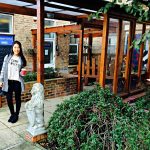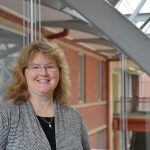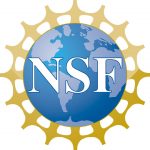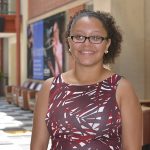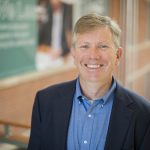As part of an international initiative co-sponsored by the U.S. Department of State and espnW, Neag School faculty members Jennie McGarry and Laura Burton, along with UConn Associate Athletic Director Ellen Tripp, will be serving in the coming weeks as hosts for the Global Sports Mentoring Program (GSMP).
The following excerpt comes from an article — titled “Food Justice: Access, Equity, and Sustainability for Healthy Students and Communities” — co-authored by Neag School associate professor René Roselle and first-year educational leadership doctoral student Chelsea Connery ’13 (ED), ’14 MA, who is also an alum of the Neag School Integrated Bachelor’s/Master’s (IB/M) program. In this piece, Roselle and Connery examine the issue of food insecurity and its impact on student achievement, touching on examples of solutions in Connecticut.
Imagine a school where students, ranging in age from 13 to 19 years old, do not regularly show up for class every day. Those who do attend may abruptly walk out in the middle of a lesson. And just outside this school’s entrance is a short, paved path that leads to an on-premises, partner hospital clinic, where most of the school’s adolescent students, facing a wide range of mental health challenges, have been admitted as patients for treatment for anywhere from two weeks to a year. Each fall, it is here — at Northgate School in North London — that several of the Neag School’s aspiring teachers arrive to intern as part of the London Study Abroad Teaching Internship Program.
Best-selling author, former third-grade teacher, and Neag School alumna Lynda Mullaly Hunt ’88 (ED), ’96 MA authored the following piece on the value of teaching, which was originally published in the September 2016 edition of the National Council of Teachers of English’s peer-reviewed journal, Voices from the Middle.
A group of UConn faculty that includes Neag School associate professors David Moss and Todd Campbell has received nearly $3 million in funding from the National Science Foundation’s Advancing Informal STEM Learning (AISL), a program that seeks to enhance learning in informal environments as well as to broaden access to and engagement in STEM learning opportunities.
When recent Neag School graduate Sarah Hodge ’15 (ED), ’16 MA was still a high schooler, she enrolled as one of the first students in the Teacher Preparatory Studies Program at Bulkeley High School, an initiative funded by Bank of America and designed to prepare and encourage talented students, particularly from minority groups, to become teachers. Although she found that she liked working with students, a teaching career was not necessarily what she thought she wanted to pursue at the time.
After almost 20 years in a variety of positions at the University of Connecticut, Joseph Madaus, professor of educational psychology, has returned to the Neag School to serve as the new associate dean for academic affairs.
Last week, the National Commission on Teaching & America’s Future (NCTAF) released a report aimed at helping educators reorganize the nation’s education system in ways that support teaching, drive learning, and provide all students with the foundation needed to build a successful future. Building on a report the Commission issued 20 years ago, it addresses current challenges facing the nation’s educators and makes recommendations focused on improving teaching and learning in the U.S.
Professor Richard Schwab, former dean of the Neag School and now Raymond Neag Endowed Professor of Educational Leadership, helped shape the new report, “What Matters Now: A New Compact for Teaching and Learning.” He describes it as a call to collective action ultimately intended to ensure that all students have access to great teaching.
Two Neag School faculty members in the Department of Educational Leadership have recently received funding — totaling more than $2 million — from the U.S. Department of Education’s Institute of Education Sciences (IES), as part of the latest round of grants issued by the National Center for Education Research (NCER)’s Education Research Grants Program.
What if we, as instructional leaders, supported creativity in teaching and learning? I mean really supported it. In short, we would see ourselves taking beautiful risks. Creativity expert and professor Ron Beghetto pens this blog post.


